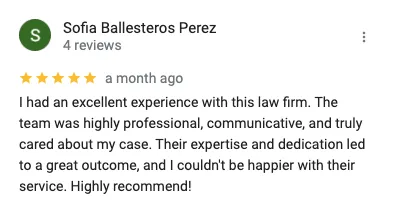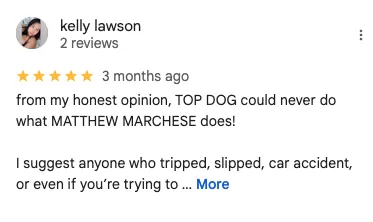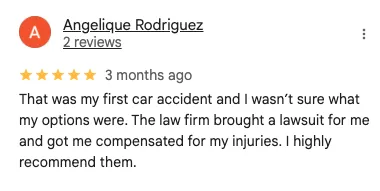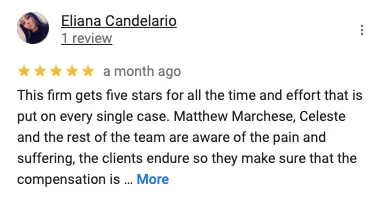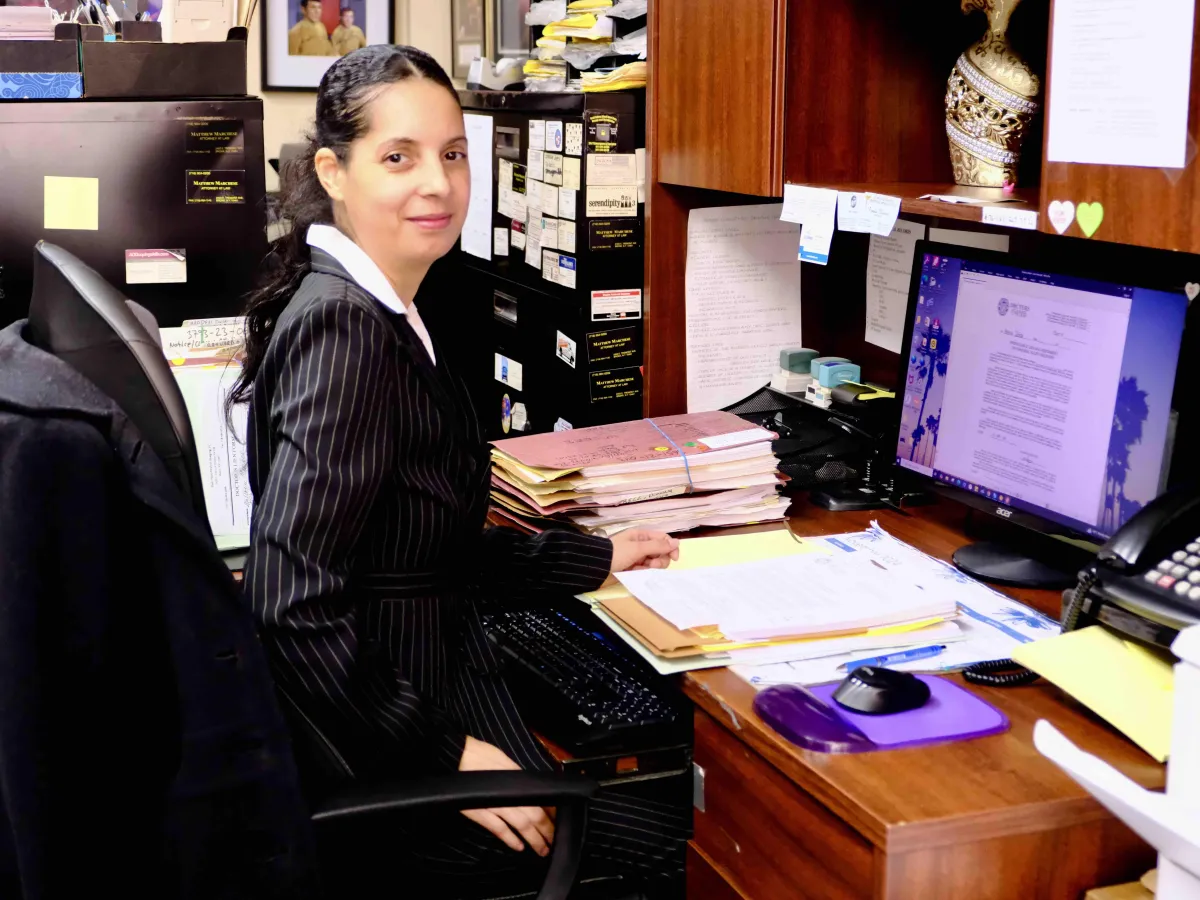Wrongful Death Lawyer in the Bronx
Fatal crash. Fall. Medical failure. When someone dies from neglect, we fight for what’s right.
From Matt: Hey, it's Matt Marchese from MyBronxLawyer.com. If you lost someone because of a crash, a fall, or a failure in care — we’re truly sorry. These are the hardest cases we handle, and the ones that matter most.We know what it takes to prove what really happened and hold the right people accountable — even if the police, landlord, or hospital won’t admit fault. You only get one chance to bring a wrongful death case. Let’s make sure it’s done right.
Wrongful Death Cases in the Bronx
No family ever expects to be in this situation — losing someone suddenly because of another person’s actions. In New York, wrongful death claims exist to hold people and institutions accountable, and to help families recover after the unimaginable.
What Is a Wrongful Death Case?
It’s a legal claim brought when someone’s death was caused by the wrongful actions, negligence, or failures of another person, company, or public agency. These cases aren’t about punishing — they’re about documenting what happened and protecting the people left behind.
What Are Common Examples of Wrongful Death?
We’ve seen these cases happen in many different forms:
- Fatal car accidents — including hit-and-runs or intersection crashes
- Highway deaths involving trucks, speeding, or lack of barriers
- Bicycle accidents where the driver failed to yield or fled the scene
- Medical mistakes — delays in diagnosis, surgical errors, or failure to monitor
- Construction site fatalities — falls, unsafe scaffolding, lack of harnesses
Every one of these cases is different. The law doesn’t bring people back — but it does create a process to hold others responsible for what happened.
Who Can File a Wrongful Death Claim?
In New York, the claim must be brought by the personal representative of the deceased — usually the executor of the estate. That person files on behalf of the surviving family, which may include a spouse, children, parents, or other dependents. We help families with this process from the very beginning.
What Types of Damages Are Available?
Wrongful death claims can include compensation for:
- Funeral and burial expenses
- Medical bills related to the fatal injury or condition
- Lost household income or support
- Loss of companionship, guidance, and care
- Conscious pain and suffering, if it occurred before death
Each of these must be proven with care — through records, witnesses, and financial documentation. These cases take time, but they are worth pursuing when something preventable took a life.
How Long Do You Have to File?
In most cases, the statute of limitations in New York is two years from the date of death. But if the case involves the City or State of New York — such as in a public road fatality — a Notice of Claim may need to be filed within 90 days. It’s critical to check early. You can learn more about time limits on our FAQ page.
Do You Need an Autopsy or Police Report?
These documents are often helpful, but not required to begin the investigation. If EMS or NYPD responded, you may be able to get the official report here. We help families piece together the timeline using hospital records, witness interviews, and any public reports available.
What If the Death Was Called an “Accident” or “Natural Causes”?
That doesn’t always tell the full story. If a loved one passed away after medical treatment, workplace injury, or sudden trauma — there may still be accountability. We’ve seen cases initially dismissed as accidental later proven to involve serious negligence.
Helpful Info
What Should You Do
After Visiting Urgent Care?
If you’ve been to urgent care after a car accident or fall, you’re not alone — it’s one of the most common first steps. But urgent care notes alone aren’t always enough. Here’s what matters next, and how to protect your health and case.
Learn more →Learn More
Explore specific legal issues tied to real Bronx neighborhoods and crash types. These resources help explain what to expect if you were injured in one of these common local scenarios.
Call 7 days a week 9am-9pm.
LET'S TALK
VISIT US
© 2025 Matthew Marchese P.C. All Rights Reserved
Law Firm of Matthew Marchese, 2403 East Tremont Avenue, Bronx, NY, 10461
The information on this website is for general information purposes only. Nothing on this site should be construed as legal advice in any particular case. The information does not create an attorney-client relationship. Attorney advertising. Prior results do not guarantee a similar outcome.
We know what it takes to prove what really happened and hold the right people accountable — even if the police, landlord, or hospital won’t admit fault. You only get one chance to bring a wrongful death case. Let’s make sure it’s done right.
Wrongful Death Cases in the Bronx
No family ever expects to be in this situation — losing someone suddenly because of another person’s actions. In New York, wrongful death claims exist to hold people and institutions accountable, and to help families recover after the unimaginable.
What Is a Wrongful Death Case?
It’s a legal claim brought when someone’s death was caused by the wrongful actions, negligence, or failures of another person, company, or public agency. These cases aren’t about punishing — they’re about documenting what happened and protecting the people left behind.
What Are Common Examples of Wrongful Death?
We’ve seen these cases happen in many different forms:
- Fatal car accidents — including hit-and-runs or intersection crashes
- Highway deaths involving trucks, speeding, or lack of barriers
- Bicycle accidents where the driver failed to yield or fled the scene
- Medical mistakes — delays in diagnosis, surgical errors, or failure to monitor
- Construction site fatalities — falls, unsafe scaffolding, lack of harnesses
Every one of these cases is different. The law doesn’t bring people back — but it does create a process to hold others responsible for what happened.
Who Can File a Wrongful Death Claim?
In New York, the claim must be brought by the personal representative of the deceased — usually the executor of the estate. That person files on behalf of the surviving family, which may include a spouse, children, parents, or other dependents. We help families with this process from the very beginning.
What Types of Damages Are Available?
Wrongful death claims can include compensation for:
- Funeral and burial expenses
- Medical bills related to the fatal injury or condition
- Lost household income or support
- Loss of companionship, guidance, and care
- Conscious pain and suffering, if it occurred before death
Each of these must be proven with care — through records, witnesses, and financial documentation. These cases take time, but they are worth pursuing when something preventable took a life.
How Long Do You Have to File?
In most cases, the statute of limitations in New York is two years from the date of death. But if the case involves the City or State of New York — such as in a public road fatality — a Notice of Claim may need to be filed within 90 days. It’s critical to check early. You can learn more about time limits on our FAQ page.
Do You Need an Autopsy or Police Report?
These documents are often helpful, but not required to begin the investigation. If EMS or NYPD responded, you may be able to get the official report here. We help families piece together the timeline using hospital records, witness interviews, and any public reports available.
What If the Death Was Called an “Accident” or “Natural Causes”?
That doesn’t always tell the full story. If a loved one passed away after medical treatment, workplace injury, or sudden trauma — there may still be accountability. We’ve seen cases initially dismissed as accidental later proven to involve serious negligence.
Learn More
Explore specific legal issues tied to real Bronx neighborhoods and crash types. These resources help explain what to expect if you were injured in one of these common local scenarios.
Helpful Info
What Should You Do
After Visiting Urgent Care?
If you’ve been to urgent care after a car accident or fall, you’re not alone — it’s one of the most common first steps. But urgent care notes alone aren’t always enough. Here’s what matters next, and how to protect your health and case.
Learn more ↗ABOUT US
We truly believe in putting our clients first. We are part of the community we serve and we understand the challenges and needs of our clients better than any other law firm.
GET IN TOUCH
Mon - Fri | 9:00 AM - 5:00 PM
Sat - Sun | Closed
We answer the phone between 9am-9pm
QUICK LINKS
© 2025 Matthew Marchese P.C. All Rights Reserved
Law Firm of Matthew Marchese, 2403 East Tremont Avenue, Bronx, NY, 10461
The information on this website is for general information purposes only. Nothing on this site should be construed as legal advice in any particular case. The information does not create an attorney-client relationship. Attorney advertising. Prior results do not guarantee a similar outcome.

